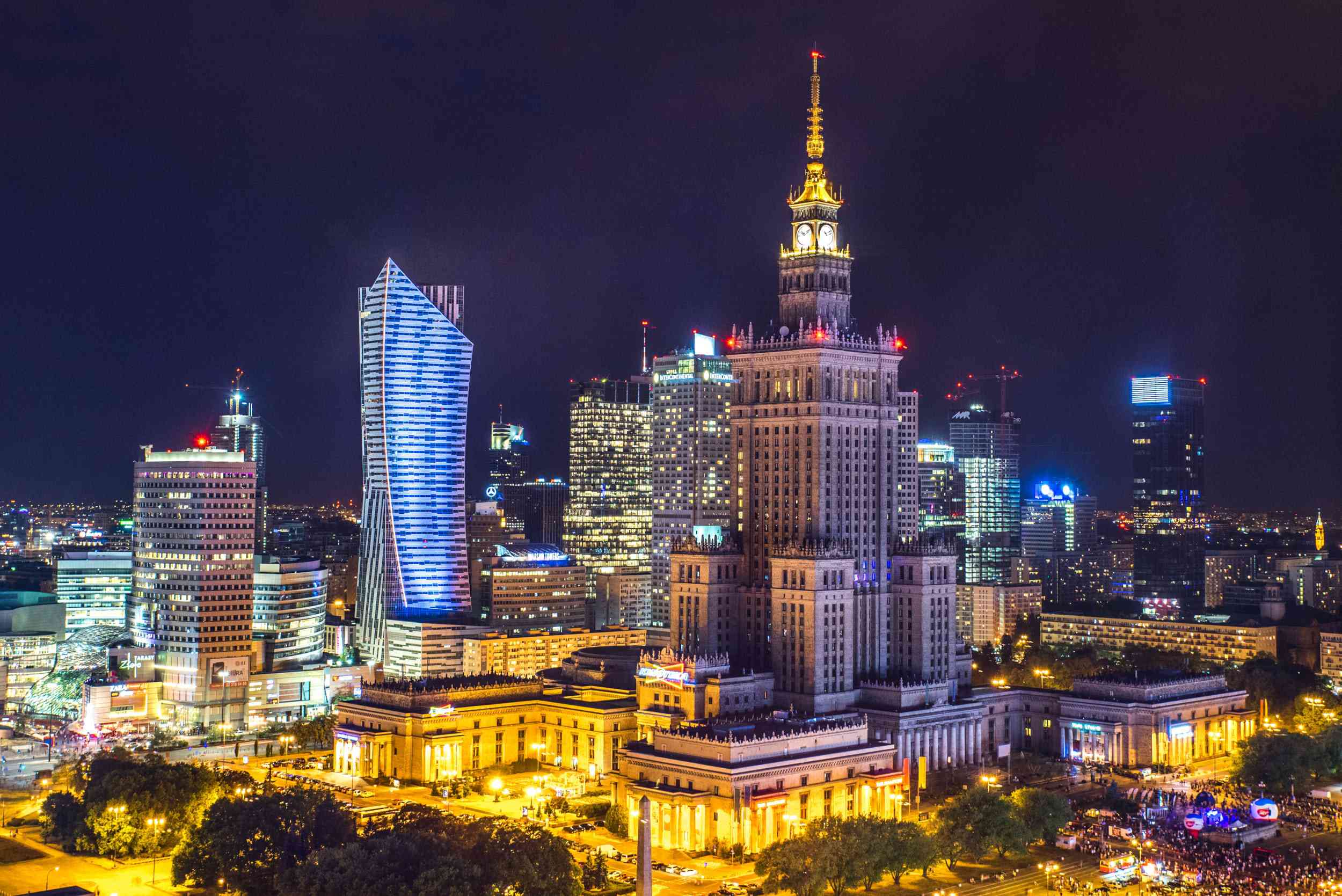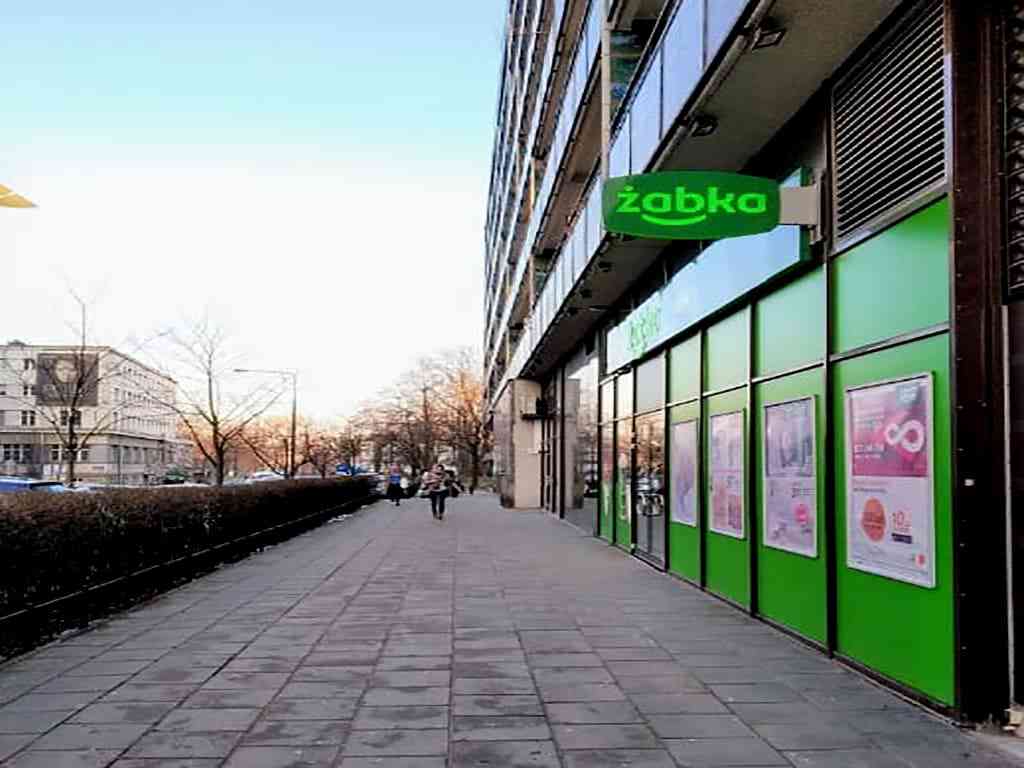Table of Contents
Can You Drink Tap Water in Warsaw?
Yes, tap water is drinkable.
Tap Safe includes data from many publicly available sources, including the WHO (World Health Organization), CDC (Center for Disease Control), and user submitted databases, but unfortunately there's not enough data about Warsaw.
To see user submitted ratings of the water quality for Poland, see the "User Submitted Ratings" box on this page.
The government in Poland guarantees that the tap water quality in Warsaw is safe to drink. Despite this guarantee, many Poles and tourists use bottled water, especially mineral water, instead of tap water. It is believed that one of the reasons people distrust tap water is because of the influence that the privatized water industry has in Poland. Ad campaigns that promote the quality of bottled mineral water over soft tap water are likely contributing to the public stigma against tap water.

Water companies operating in Poland are required to comply with standards adopted from European Union (EU) regulations. The most significant directive is the Water Framework Directive (WFD) which changed the water cleanliness evaluation system that had been used in Poland since 1970. The new system’s objectives are to preserve the Biological, Hydro-morphological (i.e. river bank structure and river continuity) and Chemical quality of ALL ground and surface water. This guarantees that any water meant for consumption must not, even potentially, pose a danger to human health. The directive also sets the general standard of acceptable concentrations of harmful substances in the human body.
Source of Water in Warsaw, Poland
Less than 1% of Warsaw’s water comes from groundwater sources (mainly for a few of the smaller outer-lying municipalities). Most of Warsaw’s water comes from the Vistula River and is retained in the Zegrze Reservoir. The Zegrze Reservoir, or Zegrze Lake, is a man-made reservoir that was built in Poland in 1963. The dam utilizes hydroelectric power to produce 20 Megawatts of energy.
There are three water supply systems that serve Warsaw residents. Central Water Main, developed in the 19th century, is the oldest. Though it has undergone numerous restorations, it continues to operate and currently provides water for more than half of all Warsaw residents. The other two supply systems are Praga Water Main and Northern Water Main.
Warsaw Tap Water
Warsaw tap water is contaminated, according to several water purification measures implemented in the Warsaw region. The recent failure of the municipal sewage system mainly applies to the sewers and does not affect the quality of tap water provided to Warsaw residents. However, the measures introduced to prevent the spread of diseases have had limited effect because diseases can only be transmitted via wet surfaces. This is why there is still a high risk of traveling from the rural areas into the capital visiting open taps in the city.
If you are traveling to Warsaw, it is important to know that Polska spring water is safe to drink. The origin of this name is derived from the numerous lakes located at the base of the two largest rivers in the city, which are called Vistula and Piazsa. These rivers were historically important for Poland’s agricultural production, and several settlements near them were important religious centers in the country. Lake Vistula is the one that gave birth to thousands of miracles, as it is said that Saint Nicholas visited there once on his way to Heaven. Several families use the other river in Warsaw, the Pulsatile (Piazza di Neve), as their main source of drinking water. Although several scientists claim that Polska spring water does not contain any harmful substances, the numerous Warsaw inhabitants continue to believe in its curative powers.
To combat the harmful effects of these two rivers, several institutions, such as the Warsaw University of Health and Medicine, have been set up to test the purity of various waters from different Warsaw places. Several water purification processes have been proposed to clean up the contaminated waters. One of them uses electronic devices that boil the water in oxygen, producing clean and healthy drinking fountains. Another procedure uses carbon filtration to clean up the Vistula River, while another process uses UV rays to kill germs and bacteria.
Water in Warsaw
If you have ever been to Warsaw, you will notice how the city’s water and sewage system are slowly but surely regaining its lost glory. It has already started to make a comeback because of all those massive sewage treatment plants built in the past decades. Although this was indeed very helpful to the city during its early stages of development, these sewage treatment plants couldn’t filter out all the different contaminants and waste products that caused such huge pollution. These pollutants ended up breeding several harmful types of germs and bacteria that made a living in the city very uncomfortable.
Fortunately, Warsaw is now beginning to eliminate these old and useless sewage plants by having them replaced with modern technology that allows the water companies to purify the water much more efficiently than before. The most noticeable improvements have come to the water pipes as well as the wastewater treatment plant. Although you may not see it immediately, you will be surprised to know that there are many types of faucets available in Warsaw that do not use older or archaic methods of dispensing water. These faucets are made using the newest technologies and designed to allow people to enjoy the water they take for granted from their faucets. The most popular type of faucet is the one that comes with two temperature controls, one for cold water and one for warm water, which gives people more flexibility when it comes to dispensing water.
Another great feature of Warsaw’s plumbing system is the new sewer line that has been built to replace the old drainage system that the World War II soldiers damaged. These sewer lines are located under the left bank and connect to the modern-day sewage treatment plant in Warsaw. The Warsaw pipes have also been replaced with newer ones, which have been designed to make water run smoothly through the entire network. Water in Warsaw has been getting better every day as people realize the benefits of having clean water. You can now experience what these people have been experiencing for years by installing a reliable water filter to provide you with your crystal clear water in Warsaw.
Warsaw Drinking Water
Warsaw drinking water treatment is provided by the Warsaw Water Utility Company (WUD). This Warsaw Bottled Water and Drinking Water Division provide filtered and chlorinated water throughout the county. The Warsaw Bottled Water and Drinking Water Division also provide hot-water service and bottled water service to several other cities and towns. The company’s main water supply comes from the Kiel Canal, a major water transportation line that delivers water throughout Poland. The water conveyed by this line passes through many filtering stations, such as Lwowek, Warszawa, Wilanow, owedich, Warsaw, Opytnica, Warsko, among other cities and towns.
The Warsaw Bottled Water and Drinking Water Division operate the city’s water utility. The Warsaw Bottled Water and Drinking Water Division provide filtered and chlorinated water to residential customers, industries, commercial businesses, and others throughout Warsaw. As a result, the water conveyed by the water utility is excellent throughout Warsaw. The water is clean and safe to drink and uses various filtration technologies, including reverse osmosis. This kind of filtration removes particles and microbes that may cause harmful biological contamination.
Some companies offer bottled water in Warsaw. However, it is very important to ensure that the bottled water you purchase has not been purified or de-mineralized. De-mineralized water does not have the minerals that naturally occur in waters. Only undiluted, unprocessed, spring-pre capped water is considered a safe and healthy choice for drinking.
Warsaw Water Quality
Warsaw is known to be one of the biggest cities in Poland, and as such, has high-quality water for drinking and other uses. Unfortunately, not everything is peachy in Warsaw. There are several cases of harmful toxins and contaminants in the city’s water supply, which have caused several illnesses among locals. This contaminated water has been labeled as unsafe for consumption, and thus it is considered a health hazard to locals and visitors. The Warsaw water quality standards that all Warsaw water companies are required to adhere to are legally strict.
The Warsaw municipal government, in cooperation with the European Union’s Community code on water quality, has made constant efforts to improve the level of water quality in Warsaw. The Warsaw government has held several conferences and workshops, which have aimed to enhance the standing of Warsaw water. Last year, the Warsaw municipal government held another meeting, wherein they discussed how to regulate better wastewater, which is a major contributor to poor water quality. Other ideas at the last Warsaw water conference included better labeling products and more awareness among consumers.
Warsaw is also taking measures to ensure that this contamination of its water source does not happen again. Last month, the Warsaw municipal government held another meeting, which brought together municipal departments and representatives of industries, farms, municipal departments, and residents. Among the participants at the meeting were some representatives from the World Health Organization’s Global Sourcing initiative. WSI’s coordinator Dr. Hamit Ben-Ami discussed the organization’s plan to assist Warsaw residents in case of an emergency or spill. WSI plans to assist people whose water sources have been contaminated through leaks or natural disasters; and help improve the quality of water in rural areas.
Warsaw Water Supply
Warsaw is one of the Polish cities with the best water and sewerage situation in Europe. The German forces attacked it during World War II, and consequently, numerous underground sewage pipes were dug to connect with the municipal sewage plants. With the help of these pipes, the water supply continued until the war was over. Today, thanks to the people of Warsaw, this system is still in perfect condition. However, the problem is that, as we know, Warsaw was hit by two serious natural disasters; the floods in Szczek Forever and the great Warsaw Uprising of World War II.
This means that the level of sanitary conditions is no higher than it should be. That is why the recent Warsaw Water Treatment Plant (WTP) has been expanded to meet the growing need for clean water. The Warsaw water treatment plant now serves the whole city of Warsaw along with the surrounding rural areas. It is not just Warsaw that requires such a treatment center. All around the city water supply has been contaminated by various diseases from bacteria to sea organisms.
It has been found that the majority of victims are children. That is the main reason why the recent municipal reform was carried out. Part of the reform gave recognition to the city’s sewage system, which was also regarded as one of the major causes of the diseases in the city. Now the entire city of Warsaw has a sanitary conditions committee responsible for ensuring that all the people living in the Warsaw area receive clean drinking water. Other cities also have a similar sewage system that provides clean drinking water for their inhabitants. The sad part is that some of the diseases that the city is now fighting against (such as dysentery, typhoid, cholera, etc.) came from the war years when sanitation was not as reliable as today.
Other links:
What do people in Warsaw think about the tap water?
Tap water is generally safe to drink, though bottled water is cheap and readily available.

The estimated price of bottled water
$0.56 in USD (1.5-liter)
USER SUBMITTED RATINGS
- Drinking Water Pollution and Inaccessibility
- Water Pollution
- Drinking Water Quality and Accessibility
- Water Quality
The above data is comprised of subjective, user submitted opinions about the water quality and pollution in Warsaw, measured on a scale from 0% (lowest) to 100% (highest).
Related FAQS
Reminder
Always take extra precautions, the water may be safe to drink when it leaves the sewage treatment plant but it may pick up pollutants during its way to your tap. We advise that you ask locals or hotel staff about the water quality. Also, note that different cities have different water mineral contents.
Sources and Resources
Sources Cited
Additional Resources
Traveler's Notes
Tap water is generally safe to drink, though bottled water is cheap and readily available.
Current Weather in Warsaw
WARSAW WEATHERSome of the Convenience Stores in Warsaw

- Carrefour Express
- Żabka
- Fresh Market
- Delikatesy Centrum
- Żabeusz Buy & Cry
- Shell
- Sklep osiedlowy
- Inmedio Trendy
- hubiz
- BP
- Kolporter
- Lewiatan
Estimated Price of Bottled Water
| Volume | PLN | USD | EUR | GBP |
| 1.5-liter | 1.98 | $0.50 | €0.46 | £0.41 |